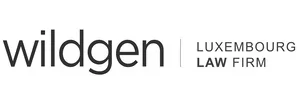On 6 November 2013, Directive 2013/50/EC of the European Parliament and of the Council of 22 October 2013 amending the so-called Transparency Directive (2004/109/EC*) was published in the Official Journal of the European Union (the "New Directive").
The Transparency Directive requires issuers of securities traded on regulated markets to inter alia publish periodic financial information about the issuer's performance over the financial year as well as on-going information on major holdings of voting rights. In this regard, the agreed improvements of the New Directive are aimed at:
- simplifying certain obligations so as to make
regulated markets more attractive for raising capital for small and
medium-sized issuers.
The New Directive intends to make obligations applicable to listed small and medium-sized issuers more proportionate, whilst guaranteeing the same level of investor protection, and to facilitate cross-border access to information; - improving legal clarity and effectiveness, notably
with respect to the disclosure of corporate
ownership.
The New Directive clarifies for instance provisions in relation to third country issuers, and eliminates administrative burdens that are now considered unnecessary. It reviews the definition of which types of financial instruments are covered, as well as the calculation of thresholds for the notification of major holdings. Moreover, the requirement to publish quarterly financial information is abolished in order to reduce the administrative burden and to encourage long term investment. Indeed, Member States may only under specific conditions require issuers to publish additional periodic financial information on a more frequent basis than the annual or half-yearly reports, namely if, after an assessment of the impacts, it is shown that such additional requirement does not lead to an excessive focus on short-term results and performance of the issuers and to a negative impact on the access of small and medium sized issuers to regulated markets. Companies could of course also decide to publish quarterly information on a voluntary basis if they wish to; - providing for sanctions that are sufficiently
dissuasive in the event of transparency requirements being
breached.
To ensure this, the text aims to harmonise Member States' legal frameworks for administrative sanctions, setting minimum common standards on certain key aspects of sanction regimes, whilst criminal sanctions are not covered.
The New Directive also includes a requirement for listed companies operating in the oil, gas and mineral extractive as well as the forestry industry, to disclose payments to governments in countries where they operate. It is thus expected that civil society would benefit from increased transparency and could hold government accountable to the revenues received from companies for exploiting natural resources.
The New Directive entered into force on 26 November 2013 and Member States, thus also Luxembourg, are required to adopt the necessary measures to transpose it into national law within two years (until 26 November 2015).
* Directive 2004/109/EC of the European Parliament and of the Council of 15 December 2004 on the harmonisation of transparency requirements in relation to information about issuers whose securities are admitted to trading on a regulated market and transposed into Luxembourg law by the law of 11 January 2008 on transparency requirements in relation to information about issuers whose securities are admitted to trading on the regulated market.
The content of this article is intended to provide a general guide to the subject matter. Specialist advice should be sought about your specific circumstances.

